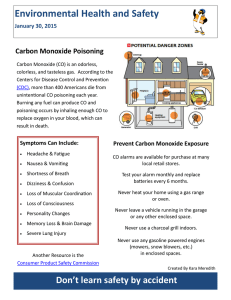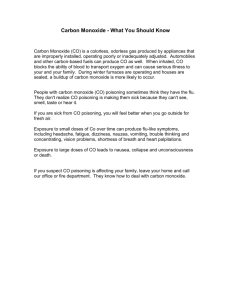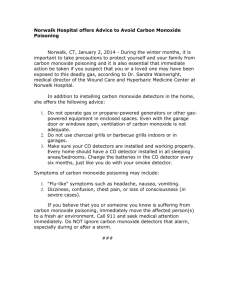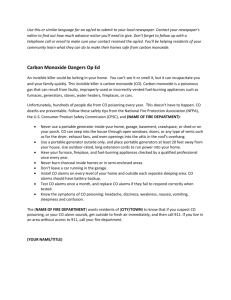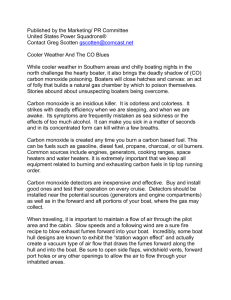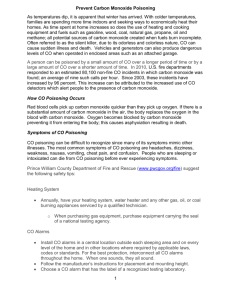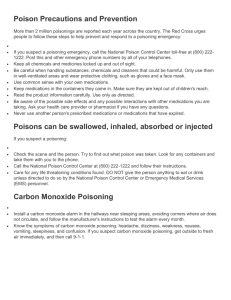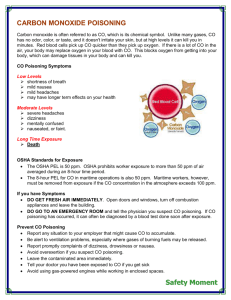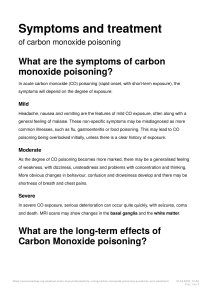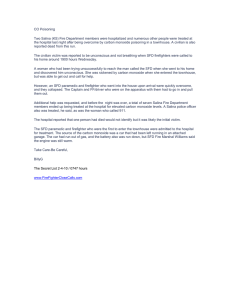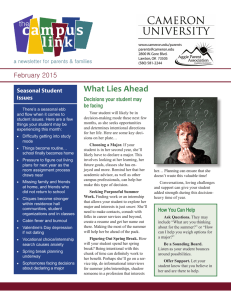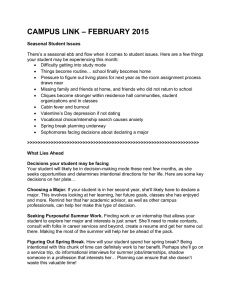Tool Box C-1 Safety Talks
advertisement
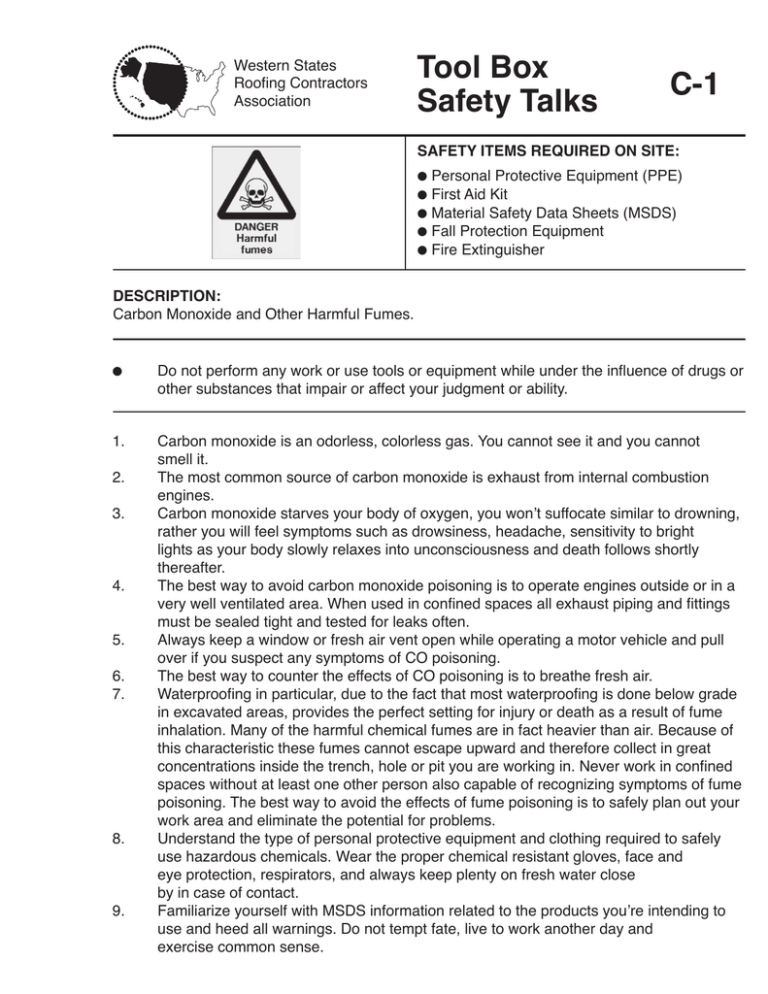
Western States Roofing Contractors Association Tool Box Safety Talks C-1 SAFETY ITEMS REQUIRED ON SITE: ● ● ● ● ● Personal Protective Equipment (PPE) First Aid Kit Material Safety Data Sheets (MSDS) Fall Protection Equipment Fire Extinguisher DESCRIPTION: Carbon Monoxide and Other Harmful Fumes. ● Do not perform any work or use tools or equipment while under the influence of drugs or other substances that impair or affect your judgment or ability. 1. Carbon monoxide is an odorless, colorless gas. You cannot see it and you cannot smell it. The most common source of carbon monoxide is exhaust from internal combustion engines. Carbon monoxide starves your body of oxygen, you wonʼt suffocate similar to drowning, rather you will feel symptoms such as drowsiness, headache, sensitivity to bright lights as your body slowly relaxes into unconsciousness and death follows shortly thereafter. The best way to avoid carbon monoxide poisoning is to operate engines outside or in a very well ventilated area. When used in confined spaces all exhaust piping and fittings must be sealed tight and tested for leaks often. Always keep a window or fresh air vent open while operating a motor vehicle and pull over if you suspect any symptoms of CO poisoning. The best way to counter the effects of CO poisoning is to breathe fresh air. Waterproofing in particular, due to the fact that most waterproofing is done below grade in excavated areas, provides the perfect setting for injury or death as a result of fume inhalation. Many of the harmful chemical fumes are in fact heavier than air. Because of this characteristic these fumes cannot escape upward and therefore collect in great concentrations inside the trench, hole or pit you are working in. Never work in confined spaces without at least one other person also capable of recognizing symptoms of fume poisoning. The best way to avoid the effects of fume poisoning is to safely plan out your work area and eliminate the potential for problems. Understand the type of personal protective equipment and clothing required to safely use hazardous chemicals. Wear the proper chemical resistant gloves, face and eye protection, respirators, and always keep plenty on fresh water close by in case of contact. Familiarize yourself with MSDS information related to the products youʼre intending to use and heed all warnings. Do not tempt fate, live to work another day and exercise common sense. 2. 3. 4. 5. 6. 7. 8. 9. SAFETY MEETING Topic: Safety Meeting Date:______________ Location: ___________________________________________ Instructor: __________________________________________ Employees Signatures: 1. _________________________________________________ 2. _________________________________________________ 3. _________________________________________________ 4. _________________________________________________ 5. _________________________________________________ 6. _________________________________________________ 7. _________________________________________________ 8. _________________________________________________ 9. _________________________________________________ 10. ________________________________________________ 11. ________________________________________________ Other Safety Items Discussed: ______________________________________________ ______________________________________________________________________ ______________________________________________________________________ ______________________________________________________________________ ______________________________________________________________________ ______________________________________________________________________ Action(s) Taken: _________________________________________________________ ______________________________________________________________________ ______________________________________________________________________ ______________________________________________________________________ ______________________________________________________________________ ______________________________________________________________________
